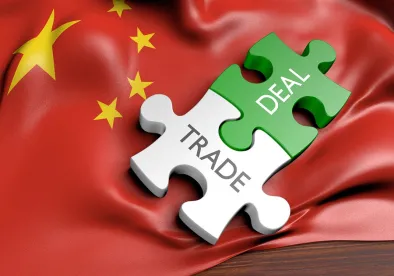Status of List 3 Exclusion Process
The Joint Explanatory Statement (JES) that accompanied the most recent government funding legislation included Congress’ intent that the United States Trade Representative (USTR) initiate a formal exclusion request process for products on List 3 of the Section 301 tariffs on Chinese imports. Those products represent approximately $200 billion of Chinese imports, and are currently subject to additional 10 percent duties.
Despite the JES, USTR Robert Lighthizer, told the House Ways and Means Committee yesterday that USTR would only initiate an exclusion request process for List 3 products if those tariffs were increased from 10 percent to 25 percent.
List 3 tariffs were scheduled to increase from 10 percent to 25 percent on March 2, 2019 if the United States and China did not come to an agreement regarding reforms to China’s policies on forced technology transfers, intellectual property protection, cyber intrusions, and other non-tariff barriers. However, President Trump has announced that the increase to 25 percent will be delayed as negotiations between both countries continue. USTR has indicated that a Federal Register notice suspending the tariff increase until further notice will be published this week.
Based on Ambassador Lighthizer’s testimony, if the List 3 duties do not increase to 25 percent, it appears that USTR will not initiate an exclusion process for those products. In responding to questioning from members of the House Ways and Means Committee, Ambassador Lighthizer noted that the JES was a committee report and not part of the legislation. The JES is not binding, but is informative as it explains the intention of the House and Senate Conference Committees on a particular aspect of a bill.
Glimpses into the Potential U.S./China Trade Deal
In his testimony, Ambassador Lighthizer emphasized that the main goal for any deal reached between the United States and China is to establish an enforceable trade deal that will curb China’s unfair trade practices, such as those outlined in USTR’s Section 301 report.
Specifically, Ambassador Lighthizer outlined a multi-layered process to ensure enforceability, which may include monthly meetings at the office director level, quarterly meetings at the vice-ministerial level, and semi-annual meetings at the ministerial level (i.e., between Ambassador Lighthizer and Chinese Vice Premier Liu He). If businesses or other stakeholders provide the administration with examples of how the agreement is not being enforced, then those issues could be addressed at these periodic meetings, allowing a mechanism to escalate important issues to the ministerial level. Importantly, Ambassador Lighthizer stressed that mechanism would allow for U.S. businesses to raise issues with USTR confidentially to reduce concerns over possible retaliation against those businesses and their interests in China.
From Ambassador Lighthizer’s testimony, it appears that the administration envisions any deal between the U.S. and China will be an executive agreement issued under the authority of Section 301, not a trade agreement that requires Congressional approval. As he observed, the potential deal would not change any tariff lines and will not be done under the Trade Promotion Authority. Instead, the agreement with China would be entered into as a settlement of the Section 301 action that imposed additional tariffs on Chinese imports.
Ambassador Lighthizer was careful to caution any potential agreement would not cure all trade tensions between the two nations, stating that “I’m not foolish enough to think there’s going to be one negotiation that’s going to change all the practices in China.” He believes that any initial deal would be the beginning of a process to curb China’s unfair trade practices. Further, Ambassador Lighthizer did state that if both nations reached a deal, the retaliatory tariffs imposed by China on goods from the United States would come off. However, he was non-committal as to whether the administration would eliminate the existing Section 301 tariffs on imports from China.
While testifying before the House Ways and Means Committee, Ambassador Lighthizer also urged Congress to pass the United States-Mexico-Canada Agreement (USMCA), stating that if Congress does not pass the agreement, then other trade agreements and initiatives that the United States may want to pursue would be meaningless. He warned that a failure to pass the USMCA would result in the United States having no credibility in dealing with other countries, including China.
We will continue to monitor these fast-moving developments. Drinker Biddle’s Customs and International Trade team has extensive experience in assisting clients with issues involving the Section 301 investigation. For further information, contact members of the Customs and International Trade team listed below.









 />i
/>i
